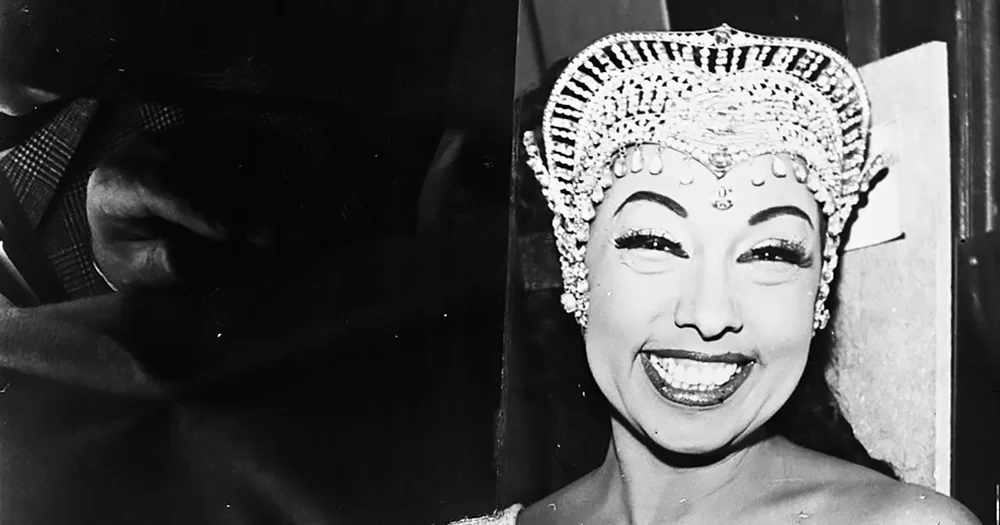More than just an artist and performer, Josephine Baker turned history upside down when it was revealed that she worked as a French spy in the Second World War. This is her astonishing story.
Born in 1906, in Saint Louis in the US, Baker started working at the age of eight as she came from a poor family. After getting married for the first time at 13, she decided to move to New York at 15 to start dancing in clubs in Harlem. Although she married for a second time there, Baker explored her sexuality and got into her first same-sex relationship with Clara Smith.
At the time, Baker couldn’t stand living in the US anymore, as segregated spaces and Jim Crow laws ruled everyday life. When she went on a European tour, she finally felt liberated as a Black woman, and so moved to Paris at 19. The City of Lights fell in love with the performer and her risqué burlesque routines like the ‘Danse Sauvage’. Josephine soon became the highest-earning entertainer in Europe and became part of Picasso’s and Hemmingway’s Parisian social circles.
Now you may ask yourself: how did an American-born superstar become one of World War II’s most notable spies?
It all started in 1939, two years after she officially became a French Citizen and when France declared war on Germany leading to the Second World War. The performer could have moved back to the US or escaped France, instead, she was recruited by the French military intelligence service. That’s how she met Jacques Abtey, with whom she had an open relationship.
Since Josephine Baker was the most famous woman in France, it seems odd to recruit her as a spy, a position that requires being as discrete as possible. Fame then became her cover. Baker used her charm and beauty to gather information about the Axis Powers, Mussolini’s troops, German agents, and Japanese politics.
Baker could easily cross borders and travel as a spy without being suspected. She started attending parties at Portuguese, Italian and Japanese embassies, where she would seduce diplomats, and write down what she overheard on her palm or napkins that she would put in her bra attached with a safety pin.
As German troops started to occupy Paris in 1940, Josephine refused to perform there anymore and fled to the South of France with her partner Jacques Abtey. There, she would hide refugees and Resistance members, continuing her performing career to secure her cover. On tour in South America, she would hide photographs under her dress and transport sheets of music on which compromising information about Nazi Germany was written in invisible ink. Baker smuggled uncountable numbers of documents to the Free French Government based in London and to Charles de Gaulle.
Josephine Baker was eventually ordered to set up a liaison and transmission centre in Casablanca in 1941. To avoid any suspicion, the dancer brought 28 pieces of luggage, pet monkeys, mice, and a Great Dane. There, she would work with foreign dignitaries and members of the French Resistance. Although she was in hospital for 18 months after getting ill in 1943, the spy would still meet with associates at her bedside. Baker was so ill, that The Chicago Defender ran her obituary, leading international media to think that she passed. She simply responded, “There has been a slight error, I’m much too busy to die”.
The one and only Josephine Baker. Dancer, Singer, Activist and Spy. pic.twitter.com/f9zPseLmPE
— Skip_Bolden ? ? ?️ (@BoldenSkip) February 18, 2024
The accomplishments of the superstar spy didn’t end there. In 1943, once she recovered, the French Air Force recruited her as a second lieutenant. Until the End of the War, Baker drove around military camps in North Africa, from Algiers to Jerusalem, to continue her work with the Resistance. In 1944, she made her grand return to Paris in a Jeep on the Champs-Elysées, dressed in her lieutenant’s uniform, and being showered with flowers.
Even if France was her land at heart, Josephine did return to the US in the 1950s to do a tour. During that time, Josephine Baker fought against racism and Jim Crow Laws. She refused to perform in front of a segregated audience and pushed clubs to open their doors to both white and Black people. She wrote articles, gave lectures about the racism she experienced, and spoke at the March on Washington, all to change African American’s realities in the US. After Martin Luther King Jr’s assassination, she got offered the leadership role of the movements, which she had to turn down as she was a mother to 12 adopted children.
The star received the most prestigious decorations for her achievements, such as the Medal of Resistance, the Croix de Guerre, and the Legion of Honour. When she died in 1975, she became the first American woman to receive French military honour at her funeral.
The legacy of Josephine Baker is unique. As a Black queer woman, she achieved so much in the entertainment industry, in her fight against racism, and in demolishing Nazi Germany.
© 2024 GCN (Gay Community News). All rights reserved.
Support GCN
GCN is a free, vital resource for Ireland’s LGBTQ+ community since 1988.
GCN is a trading name of National LGBT Federation CLG, a registered charity - Charity Number: 20034580.
GCN relies on the generous support of the community and allies to sustain the crucial work that we do. Producing GCN is costly, and, in an industry which has been hugely impacted by rising costs, we need your support to help sustain and grow this vital resource.
Supporting GCN for as little as €1.99 per month will help us continue our work as Ireland’s free, independent LGBTQ+ media.
